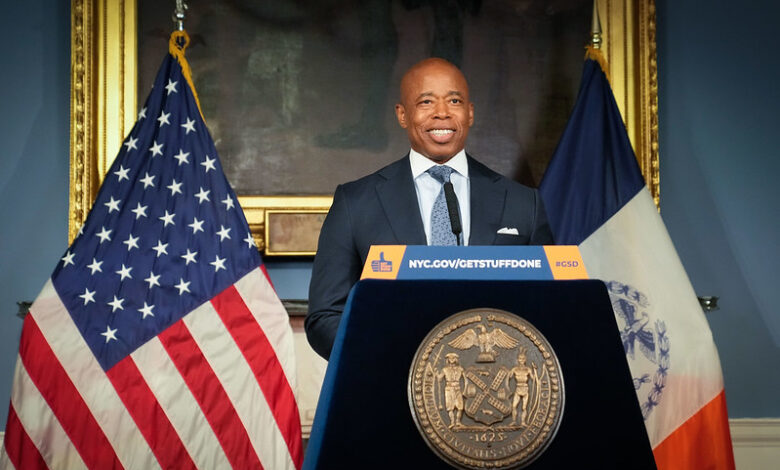Community Op-Ed: Making New York City the future for women’s health
By Mayor Eric Adams

Every New Yorker has strong women in their life. The women who birthed and nurtured them. Our mothers, sisters, aunties, and grandmas.
Our teachers, our doctors, nurses, engineers, scientists. The hardworking women who make life in this city possible and inspire us,
We owe so much to women. Yet for generations, women’s health has not been prioritized. For decades the healthcare system has been centered around men.
This is personal for me. I am who I am because of a woman: my mother, Dorothy Adams. And I watched my mom and my sister suffer as they navigated the health system. They were ignored, forgotten, and struggled to get the care they needed.
Far too many New Yorkers know a woman who has gone through this.
My administration is already hard at work to change this. Last week, we held the first ever Women’s Health Summit to lay the groundwork to shape what the future of women’s health care can be in this city.
We are going to make New York City the national model for supporting health for women and girls, including those in our LGBTQ+ community.
The summit brought together more than 100 experts from a wide variety of sectors to shape New York City’s first ‘Women’s Health Agenda.”
It focused on four key areas critical to women’s health: chronic disease, birth equity, sexual and reproductive health, and mental health.
Working mothers shouldn’t have to choose between a paycheck or nursing their newborn child. Women shouldn’t have to wait decades for an accurate diagnosis.
Black and Latina women shouldn’t live with inequities that deny them access and care. And women shouldn’t have to fight for their right to choose.
Black women are nine times more likely to die of pregnancy and birth related caused then white women. And maternal mortality among Black women increased during COVID. So, we are going to expand access to high quality maternal health care, including the use of doulas and midwives, to eliminate disparities in maternal mortality and reduce mortality overall.
It’s no secret mental health was impacted during the pandemic.14% of women in NYC experience depression. Rates are even higher among LGBTQ+ communities. So, we are going to build a mental health care system designed for women and members of the LGBTQ+ community to best serve their needs.
One in five women experience infertility. For this and many other reasons, we are going to ensure the city’s sexual and reproductive health care system provides comprehensive care to women and girls including menopause care, infertility, birth control and access to abortion medication.
Many don’t realize this, but heart disease is the leading cause of death for adult women in NYC. And so many folks delayed critical preventive health screening during COVID. So, we are going to work to increase utilization of preventive care and lifestyle medicine approaches to reduce the rates of, and deaths from, chronic diseases.
We are also going to develop women-friendly workplaces – and this includes throughout city government – that promote health and wellness through space accommodations and policy reforms.
Women are diagnosed on average four years later than men across many of the most common health conditions. So, we are going to expand research into women’s health issues and reduce disparities in medical research to reduce this gap in knowledge and outcomes.
This entire administration is committed to building a city that is here for all women and girls.
The result of last week’s summit will provide the basis for the New York City’s Women’s Health Agenda report, which will be released this summer.
We have seen how quickly women’s rights to healthcare can be taken away, with last year’s Supreme Court decision to overturn Roe v Wade. Health is wealth, and women need both.
We must make sure the women who have so often taken care of us are getting taken care of when they need it most. As Women’s History Month ends, let’s rededicate ourselves to the women we owe everything to. Together we can make New York City the future for women’s health.


